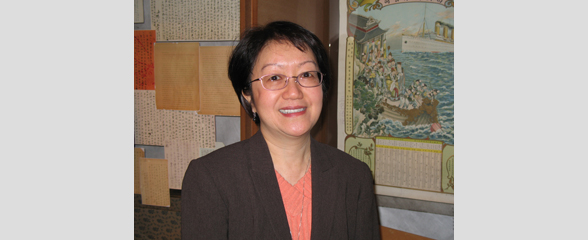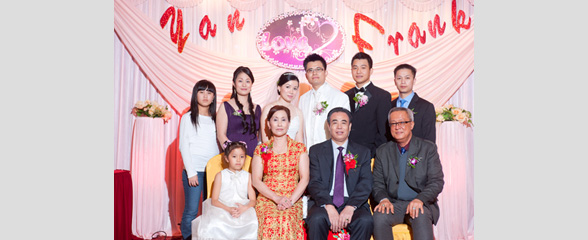English as a Second Language

2008.040.017 Oral History Interview with Margaret Chin March 6, 2008
Margaret Chin, Deputy Executive Director of Asian Americans for Equality (AAFE), shares her experiences immigrating to the United States with her family in 1963 and growing up on Mulberry Street, and later Mott Street, both of which were inhabited by predominantly Chinese and Italian populations. Her memories of Chinatown reveal that it was a much smaller community then, which eventually expanded and became more vocal about Asian American rights.
As a young adult, Chin became increasingly interested in and involved with volunteering for AAFE, an advocacy organization established in 1974. AAFE played a key role in organizing Chinatown tenants to fight against eviction, harassment, and gentrification in the housing developments; to secure decent housing for low-income families; and to expose the threat of development and tourism on Chinatowns “authenticityâ€. Chin believes that the organization has succeeded in staying true to its mission by actively organizing and changing policy and legislation for the benefit of the community.

2013.022.003 Oral History Interview with Frank Liu
Frank Liu, former Director of Technology at MOCA, sits down with Tomie Arai to conduct an oral history recounting his experience growing up in Chinatown during the ‘90s and early 2000s. Liu discusses his family’s history and their experience immigrating to the U.S. from Fuzhou, Fujian when he was seventeen years old, in 1998. He discusses how his uncle was able to sponsor his family to come to the U.S. and how his family moved to Chinatown initially upon their arrival. He discusses how even though his family was able to immigrate to America legally through his uncle, many other Fujianese people at the time were smuggled to America illegally in hopes of a better future for themselves and their children. Liu talks about the two main groups of people in Chinatown: the Fujianese and the Cantonese. He discusses his ties to the Fujianese community in Chinatown through his mother, and how his family gets together for family reunions to see each other and feel connected through their Fujianese roots. He talks about meeting his wife and learning to communicate with her family, since she is originally from Taishan and her parents only speak Cantonese. He talks about how glad he is that his mother encouraged him to go to school and study instead of taking the more traditional route of earning money right away, and he remarks on how much he values his education. Frank introduces some artifacts that are important to his family’s history, such as photos from when they first immigrated, photos from the first time they rode the New York subway, and a digital camera that he saved for and was the first important object that he purchased for himself with his earned savings. The interview ends with the discussion of a Fujianese museum or community archive, and the materials or items that Liu would want included in that documentation effort.